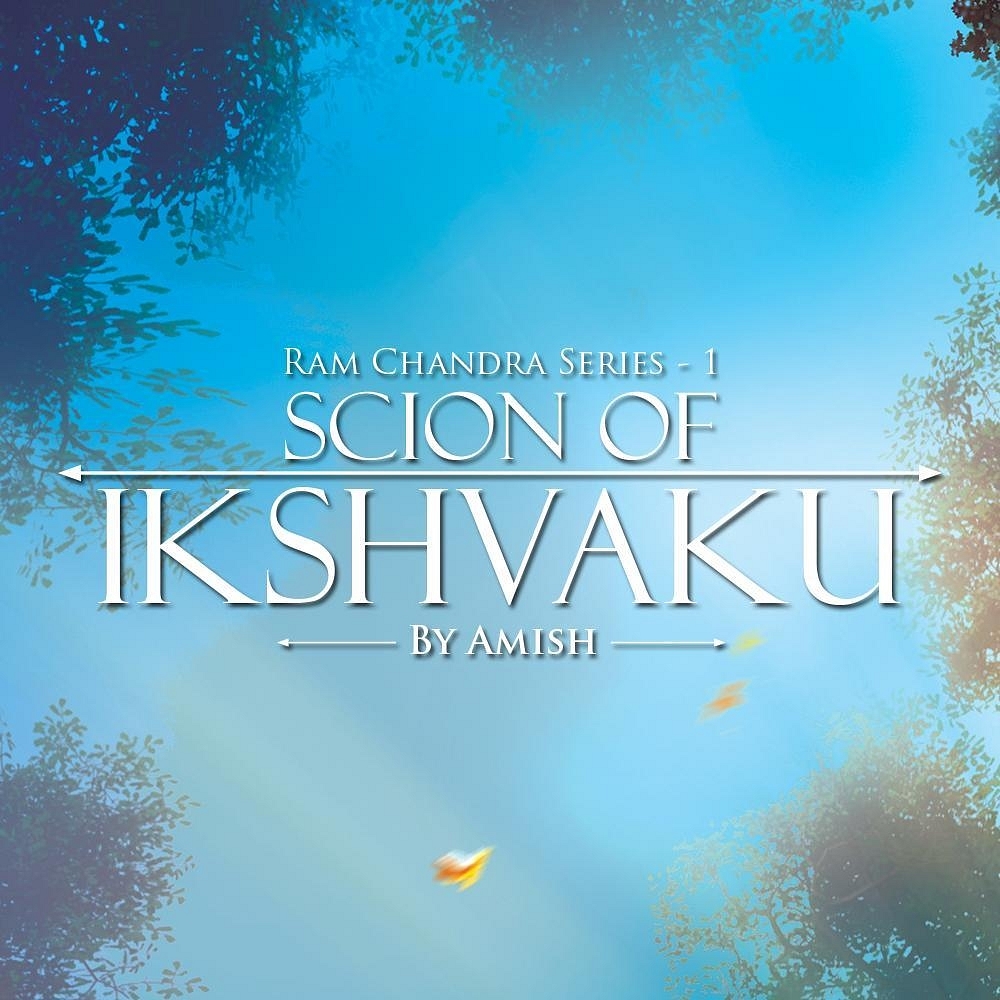Amish’s latest book is a story that is told extremely well and it makes you expectantly wait for the sequel, writes Bibek Debroy.
Scion of Ikshvaku, Ram Chandra Series I, Amish, Westland 2015, pp. (xviii) + 354, Rs 350.
Amish is a wonderful and gripping writer, with a style that grabs you. That’s obvious. Why else would the Shiva Trilogy have done so well? With Shiva behind him, it’s over to Rama Chandra (Amish writes it as Ram Chandra) series. I have no problems with people using Ram for Rama or Bharat for Bharata, though, in that case, Vashishta should logically have been Vashisht. Indeed, one can choose between Vasishtha and Vashishtha, with or without the terminal “a”, but it has to be a “th”, not a “t”. Somewhat in the same vein, Parshu Ram instead of Parashu Ram grated. I wish proper names had been rendered with greater care.
I was also uncomfortable with references to Shaturaghn(a) reading “book”s or a “glass” of milk, or even a “blouse”. In passing, here is a quote ascribed to Vashishtha. “Kimapi Nu Janaahaa Vadishyanti. Tadeva Kaaryam Janaanaam. People will talk nonsense. It is, after all, their job.” In the absence of diacritical marks (not desirable in a novel), the artificial way of writing Sanskrit is understandable, and there is nothing wrong with the first sentence. But in the second sentence, either the Sanskrit or the translation is wrong. (There is a similar problem on p.247 too.) On p. 345, one means the Taittiriya Upanishad, not the “Taitreya” Upanishad.
I shouldn’t have said Shiva is over. Rudra is still in the background and these incidents, from the Ramayana, occur after the events of the Shiva trilogy. The Amish books do well not only because he writes well, or markets them well. They also do well because he gives familiar stories a twist. I have heard criticisms (about Shiva trilogy) that he takes liberties with familiar characters. I think these criticisms are misplaced. There is nothing wrong with taking liberties. This isn’t supposed to be history, it is fiction.
So far as this book is concerned, it is India, circa 3400 BCE, with the kingdoms of Kekaya, Kosala, Videha and Lanka straddling the sub-continent. I didn’t quite understand why the rivers are labelled Jhelum, Chenab, Ravi, Beas, and Sutlej. Given the context, Vitasta, Chandrabhaga, Iravati, Vipasha and Shatadru would have been so much better. If you have read the Shiva trilogy, you know about a twist given to mutants. That continues here, with Jatayu and the nagas.
What was Amish before he turned author? He was a banker and worked in financial services. Ipso facto, he has an interest in economics, business, commerce, and trade. That rarely intruded in the Shiva trilogy. In this volume, that’s the twist given to Kubera (written as Kubaer), Manthara and relationships between Ayodha and Lanka. (If I tell you the twist, it will spoil the book for you.) Yet, another twist is given to Shukracharya and relationships between devas and asuras. (I didn’t find this very plausible, though it is innovative. In any event, I won’t reveal the details.) Nor will I reveal the interesting take on the time of Rama’s birth, or Rama’s attempts to improve the functioning of the criminal justice system or the reason for Rama’s exile. But the story won’t be spoilt if I tell you there is an incident reminiscent of the Nirbhaya case.
It’s a story that is told extremely well and it makes you expectantly wait for the sequel. I hate reviewing books like this. You can’t properly review the book, without revealing the plot, which I don’t want to. The Ramayana story is a familiar one. Suffice to say, this volume ends with Ravana’s abduction of Sita and our introduction to Hanuman. My guess is that we are heading towards another trilogy. I hope the sequel will take care of the kind of editorial problems I mentioned in the first paragraph. Do read this one, unless you have done so already. If nothing else, a lot of people have learnt to pronounce Ikshvaku.
Introducing ElectionsHQ + 50 Ground Reports Project
The 2024 elections might seem easy to guess, but there are some important questions that shouldn't be missed.
Do freebies still sway voters? Do people prioritise infrastructure when voting? How will Punjab vote?
The answers to these questions provide great insights into where we, as a country, are headed in the years to come.
Swarajya is starting a project with an aim to do 50 solid ground stories and a smart commentary service on WhatsApp, a one-of-a-kind. We'd love your support during this election season.
Click below to contribute.
Latest
